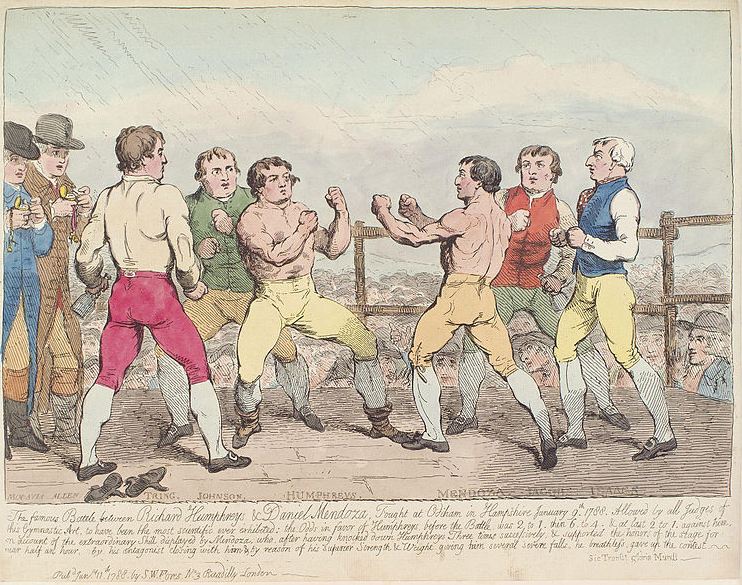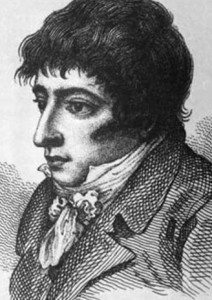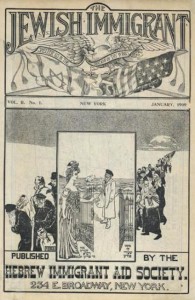The Father of Modern Boxing
Daniel Mendoza (1764-1836) was born in England to a Jewish family of Portuguese descent. Little is known of his early life. At 16, he was working for a tea company, and stepped in to protect his employer from a client. It is reported that the bout lasted 45 minutes until the much older and larger assailant could no longer continue. The young Mendoza became a local hero. He was soon drawn to the sport of boxing and found a mentor. By 1788 he had won 27 bare-knuckle boxing matches, all by knockout. By 1792 he had become the undisputed Heavyweight Champion of England, despite being just 160 pounds and officially designated a middleweight. He went on to become the first middleweight in history to win the Heavyweight Championship of the World. Mendoza’s immense success lay in his revolutionary tactics. Until this point, boxing typically consisted of a series of punches and very little movement. Mendoza developed a form of boxing based on defensive principles like ducking and blocking instead of just offence. He is credited with inventing the side-step, and developing the strategy of wearing down an opponent. Later, Mendoza opened his own boxing school and wrote a book called The Art of Boxing where he described the sport as a science. He traveled across Great Britain to teach his methods, inspiring a new generation of boxers. For all of these reasons, among others, he has been called “the father of modern boxing”, and not surprisingly, was first to be inducted into the International Boxing Hall of Fame. Mendoza was also instrumental in changing the stereotypical European image of the “weak Jew”, and was the first Jew to have an audience with King George III. Both a play and film have been made about his life.
Words of the Week
When you are not practicing, remember that someone, somewhere, is practicing, and when you meet him, he will win.
– Ed Macauley

1788 Illustration of Mendoza’s match with Richard Humphreys


